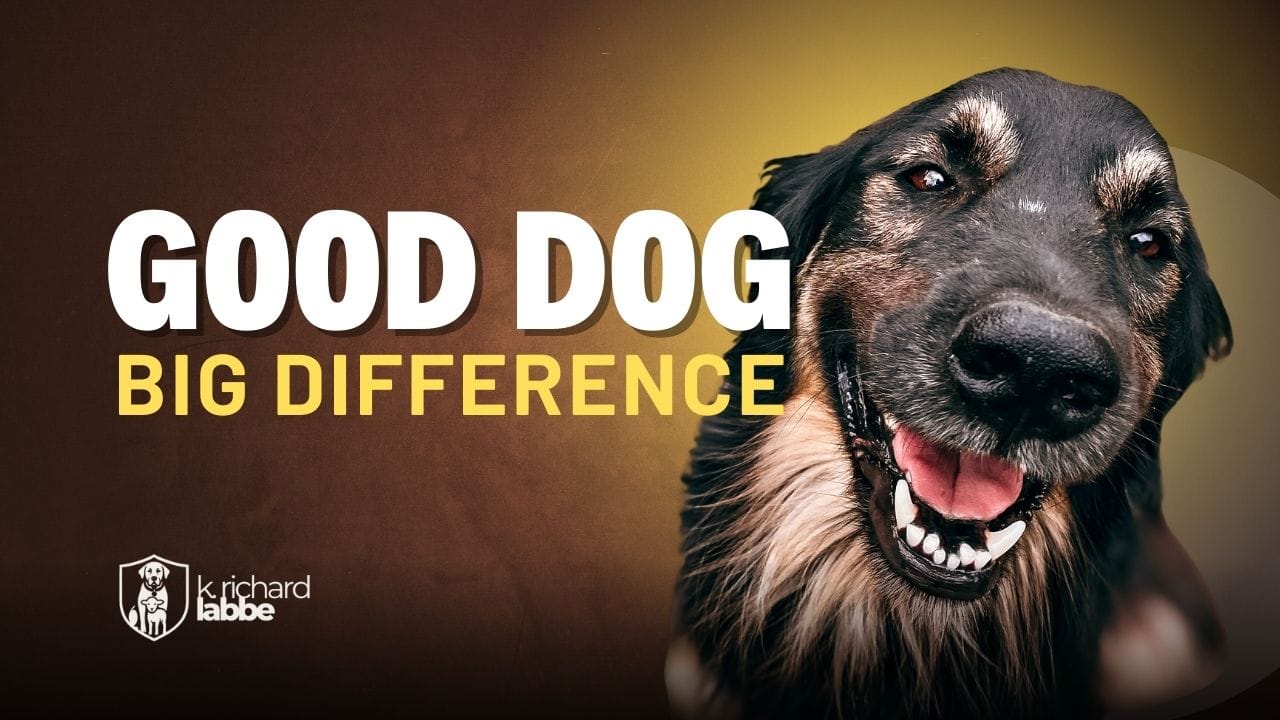A Good Dog Can Make a Big Difference: How a Well-Trained Dog Supports Home and Personal Security
You don’t need a guard dog to feel safer at home. But a well-trained, well-bonded dog can offer real security—quietly and consistently—just by being tuned in, present, and alert to what’s going on around you.

Why a Dog Might Be Your Most Overlooked Safety Tool
People get dogs for companionship—and rightly so. A dog gets you outside, keeps you company, and brings life into a quiet home. But over time, many discover something more: a dog doesn’t just keep you company. They help you stay aware.
They hear what you don’t. Notice what you miss. And in a world where distraction makes us vulnerable—to scams, intrusions, and opportunistic harm—that quiet alertness matters more than we think.
Not Just a Pet—A Partner in Awareness
You don’t need a guard dog. You need a dog who’s tuned in.
A good companion dog becomes an extra set of ears and instincts—someone who notices when something’s off. That bark at the window? That hesitation on a walk? Often, it’s not nothing. It’s your early warning system. And when it comes to personal safety, early is everything.
Most bad actors want easy targets. A dog—even one that simply barks or steps between you and the door—adds just enough friction to make them think twice.
What Kind of Dog Fits This Role?
You’re not looking for a police K9. You’re looking for a steady companion with instincts—and the training to listen.
Here’s what to consider:
- Temperament over size. A calm, attentive dog is more valuable than a loud one you can’t control.
- Trainability. Look for breeds or mixes known for their responsiveness and bond with humans (retrievers, collies, shepherds, some hounds or mutts).
- Energy level. Match their needs with your lifestyle. A dog that’s restless or under-stimulated is more likely to act out than assist.
Already have a dog? Great. Focus on foundational behaviors:
- Coming when called
- Waiting at doors
- Barking at—but not lunging toward—visitors
- Leash control and home boundaries
These small habits build a dog that’s not just pleasant to live with—but quietly protective, too.
A Companion That Grounds and Guards—Especially for Seniors
For older adults, a dog can do more than alert to a sound. It can anchor a routine, ease loneliness, and provide a real sense of presence in the home.
But not every senior needs the full responsibility of ownership. Sometimes, regular visits from a family member’s well-trained dog can offer many of the same benefits—without the burden.
This isn’t about giving someone more to worry about. It’s about offering a new kind of support—relational, emotional, and practical.
Choosing With Care
Welcoming a dog into your home—especially with safety in mind—isn’t about turning your life into a fortress. It’s about paying attention on purpose. It’s about making space for presence, alertness, and trust.
Because a dog won’t replace your judgment or your locks. But the right one? They’ll help you breathe easier, walk wiser, and notice what matters—before trouble ever gets close.
“The horse is made ready for the day of battle, but victory rests with the Lord.”
—Proverbs 21:31 (NIV)
Train what you can. Trust God with the rest.
Possible Action Steps
- If you have a dog, reinforce the basics: recall, stay, bark-on-alert.
- If you’re considering one, research breeds known for calm loyalty (Labrador Retriever, Border Collie, German Shepherd mix, or mutts with working-dog traits).
- Talk with a trainer about in-home behavior and alert conditioning—not aggression.
- And if you’re caring for a senior, consider how a dog might bring both peace and presence to their daily life.
Prepared, not paranoid. That’s how we stay safe—with someone at our side.
Stay safe. Be ready. Online and off.
Every effort has been made to ensure the accuracy and reliability of the information presented here. While Labbe Media, LLC strives to offer clear, well-researched guidance, this content is intended for educational purposes only and isn’t a substitute for professional advice tailored to your situation. We encourage you to use this material as a starting point—and to double-check details and consult trusted professionals when making important decisions.
